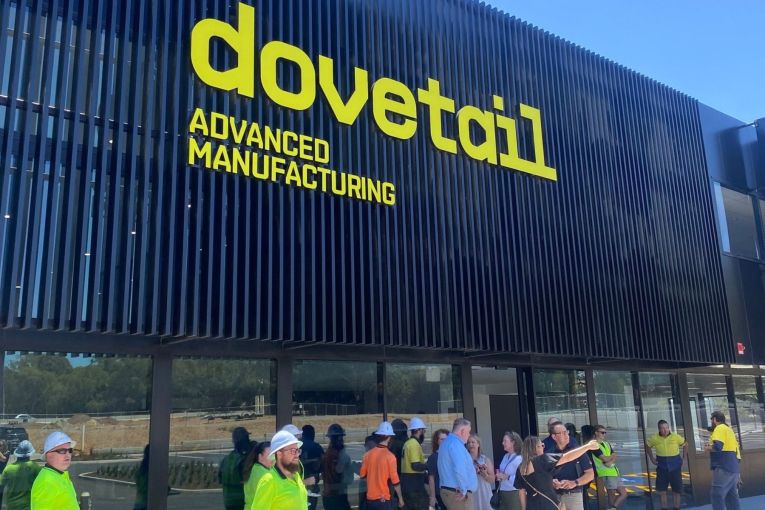New $90 million research centre to grow plants in space
At the University of Adelaide’s Waite campus, a team of researchers will figure out how to grow edible plants in harsh conditions to feed astronauts in space and on the Moon and Mars.

Funded by $35 million in federal government money plus some $55 million from industry partners, the new ARC Centre of Excellence in Plants for Space will research methods to grow edible and nutritious plants in unconventional environments.
More than 90 researchers are already working on projects at Plants for Space, situated at the University of Adelaide’s Waite Campus at Urrbrae.
Over the next seven years, Plants for Space – helmed by director Professor Matthew Gilliham – aims to have 200 researchers exploring how to make plants more climate resilient and more nutritious.
By the early 2030s, Plants for Space aims to create 15 new technologies taken up by industry on Earth, five technologies in space, and three startups launched to enable research commercialisation.
The four main objectives of the research centre are to develop zero-waste plants whereby every part can be either eaten or used for other purposes in indoor, controlled environments like vertical farms; to develop plant-based foods that provide complete nutrition, including protein; to create smart plants that operate as “biological factories”; and to develop a future-ready workforce and society that understands the value of sustainable food production.
Discoveries made at the centre will also be applicable in non-space environments too, the centre hopes, such as growing plants in submarines or areas where climate change has made it unsustainable to grow crops traditionally.
You might like
Leafy “pick and eat” greens like lettuce will be engineered to deliver complete nutritional benefits and familiar plants like tomatoes and strawberries will be optimised for productive growth within contained conditions.
A more unconventional plant – duckweed – may also be on the menu for future astronauts. The protein-rich plant can grow quickly and the centre suggested it might even be able to make plant-based burgers using the plant that typically grows on the surface of lakes.

The research goes further than food, and efforts are being made to get plants to create biodegradable bioplastics, which can be dropped into manufacturing pipelines and 3D printers to create tools and parts in space.
Though based at the University of Adelaide, Plants for Space is collaborating with researchers across the country including the University of Western Australia, La Trobe University, the University of Melbourne and Flinders University.
Overseas universities are also collaborating on the Plants for Space project, alongside organisations like the Department of Primary Industries and Regions South Australia (PIRSA), NASA, the Australian Space Agency, and more.
Stay informed, daily
Professor Gilliham said Plants for Space was not aiming to replace traditional agriculture.
“This is a new way of providing climate-resilient options… it’s about providing new avenues for income to farmers in a climate-resilient way,” he said.
“The really exciting development over the next few years is to use plants as a medium for producing medicines and high-value products – so not just food – other items that we can, through synthetic biology, introduce into plants or optimise those plants to grow in those conditions.
“That is predicted to be a US$30 trillion opportunity by 2030 – it’s a very real opportunity and it’s coming very quickly.”
The research will help build climate resilience into the food chain too, Professor Gilliham said.
“We know about the $11 head of lettuce that happened during the New South Wales floods, so it’s providing an option for climate resilience.
“There could be ways to supplement that and have an alternative way to soften blows going forward.”
Asked whether the future diets of astronauts would be a vegan diet, Dr Gilliham said that was likely, but would be supplemented by other sources of protein like insects.
“There’s probably vegan astronauts already, but plants are the source of life on Earth – they are the base of the food chain, animals eat the plants before we eat them.
“You’re not going to be taking cows into space with you, or sheep or large livestock, but insects are an emerging industry here that has some potential value.”









